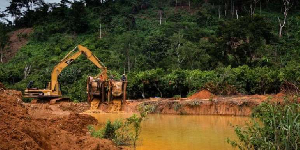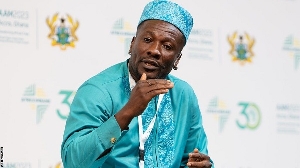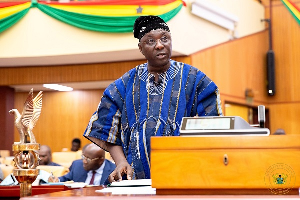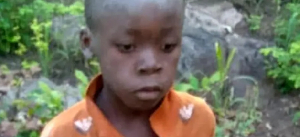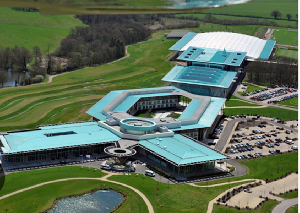Ghana is facing a dire situation as illegal gold mining continues to ravage the country's environment, economy, and health. The devastating consequences of this illicit activity include polluted surface and groundwater, surrounding seas from polluted rivers, contaminated soil, and toxic air in some areas.
The effects are far-reaching, with pollutants showing up in high levels in foods, including fish for local consumption and exports, and particularly in one of Ghana’s main cash crops - cocoa.
On the quantity side, cocoa lands are constantly lost to illegal activities, and on the quality side, levels of pollutants, especially heavy metals, are found in the cocoa beans. Both the Ghanaian and global economies could suffer from an imbalance in global cocoa production levels, given that Ghana is one of the main cocoa producers in the world, as well as the rising levels of pollutants.
Note that the systems encircling the earth are connected, and some aquatic and land life moves around the globe given the changing seasons and weather conditions. Hence, issues on one side of the globe could be transported to the other side given the connected waters, air, and moving life, particularly animals.
The Economic Toll
The impacts of illegal mining, given its many categorizations including environmental, social, community, health, and psychological, are all directly or indirectly linked to economic impacts such as:
1. Loss of revenue and taxes
2. Economic instability and inflation
3. Corruption and money laundering
4. Environmental costs (clean-up and restoration)
5. Health costs (medical treatment and lost productivity)
6. Decreased economic opportunities (due to environmental degradation)
7. Risk that everything in/from Ghana is pollutant-laden
Illegal mining could cripple Ghana's economy, particularly the cocoa industry, which is the backbone of the country's economy. The encroachment of mining activities on cocoa farms not only lowers the cocoa quality but also reduces available lands for cultivation, hence, lower production quantity - jeopardizing the livelihoods of thousands of farmers and the loss of revenue from cocoa exports with a ripple effect on the entire Ghanaian economy while causing an imbalance in the global supply to drive cocoa and associated product prices up.
Quality issues could lead to lower cocoa demand since for some needs blending with less polluted substitutes such as oil is the way to go. In the worst case, there could be an outright ban if the pollutant levels in cocoa are extremely high.
It is worth noting that even if cocoa production is restored to previous levels, the issue with quality will still loom unless necessary steps are taken to lower the pollutants in affected areas. This could be a huge financial impact or burden on Ghana.
On the one hand, cocoa is renewable and assures a constant supply space of revenue which the masses or the Ghanaian economy enjoy. On the other hand, gold is non-renewable, which given these illegal activities, only a few are enjoying in the short term, while the masses or the Ghanaian economy will pay the price and suffer the impacts in the long term.
The question is - do the few want to enjoy themselves in the short term at the detriment of the masses in the long term or enjoy in the long term knowing there is no pollution to harm you? It is worth noting that psychological impacts exist which will come to haunt many by just being unsure about what one has/is exposed to.
Something needs to be done about this immediately given the expected future huge consequences. Could this be contributory to why people are dying young? No one is immune and time is ticking.
Both health and psychological impacts associated with illegal mining activities on Ghanaians include lower individual productivity. A country without well-being citizens with sound minds suffer. The rising kidney disease dealt with by dialysis is only a treatment of the symptoms and not the source of the issue.
Ghana, once called a global destination for many tourists, could be a thing of the past. It would not attract many investors and industries, which would deepen the existing unemployment situation and drive more illegal mining activities for the sake of solving the unemployment issues only to deepen the vicious cycle – which could be difficult to break, allowing it to persist indefinitely.
This is happening at a critical time where the stakes are high; however, a decisive and clear response on the way forward is necessary. The financial implications for treating and restoring affected water, soil, and air to normalcy are huge and require time and effort, which stoppage is of the essence now, not to accrue more financial responsibilities if deterioration is allowed to take its course.
In conclusion, Ghana's future is at stake and hangs in the balance of effective actions to stop illegal activities, treatment, and restoration. Ghana's economy will suffer, and the environment will deteriorate further to unveil more catastrophic consequences. However, by working together, Ghanaians can protect the country’s natural resources, ensure sustainable development, maintain the image, and preserve the livelihoods of its citizens. The time to act is now, and the power lies in your hands.
Click to view details



Opinions of Sunday, 3 November 2024
Columnist: Alexander Anim - Mensah, PhD (ChE)





